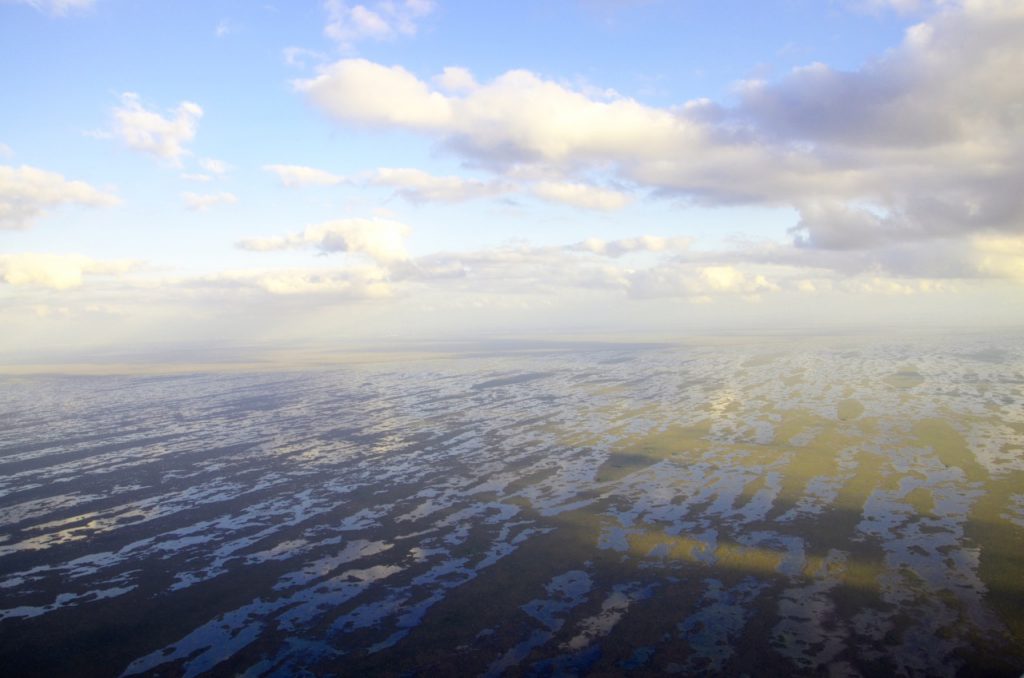This time last year, Captain Daniel Andrews had never heard of the Everglades Coalition.
The Fort Myers native just knew that fishing wasn’t doing well. The seagrass beds and oyster reefs he had fished with his father were disappearing.
Now, a year later, the co-founder of nonprofit Captains for Clean Water found himself sitting on a panel at the 32nd Annual Everglades Coalition Conference, speaking about Florida’s water quality crisis. As a local businessman directly affected by poor water quality, Andrews has been educating himself over the last year to grasp what’s happening and what to do about it.
“We can’t just sprinkle seeds out there and grow sea grass,” he said. “We’re putting our future in jeopardy.”
Andrews was just one of a myriad of panelists and experts representing local, state and national agencies and organizations who attended the conference hosted by the Sanibel Captiva Conservation Foundation, held Jan. 5-8 at the Sanibel Harbor Marriott Resort.
Despite the diversity, a common concern united the 300-some attendees: Florida’s water quality issues and how to solve them.
For one group of panelists, improving water quality is directly related to their livelihoods.
The conference assembled a “breakout session” in which representatives from state and national anglers associations as well as marine industry leaders could discuss how Lake Okeechobee discharges are affecting fish in the Gulf and Atlantic.
“You’re not going to find much more passion than from the folks who are out there day in and day out,” said Ed Tamson of the Theodore Roosevelt Conservation Partnership, who moderated the panel.
According to data assembled by panelist Dr. Aaron Adams of the Bonefish & Tarpon Trust, the fishing industry accounts for $7.6 billion in economic impact in Florida in a year. That number includes both tourists and visitors who travel to Florida for its status as the number one fishing state in the country but also from the local fishers and anglers who pay for licenses, permits and taxes.
Adams said that the releases from Lake Okeechobee are devastating to the ecosystems at the mouths of rivers – with or without the addition of toxic nutrients within the water. That’s because the natural mixing of fresh and salt water has been disturbed, and species such as sea grass beds and oyster reefs can’t survive in water with a too-low salinity level.
“If seagrass is exposed to freshwater for more than two weeks, it dies,” he said. “And then it’s replaced by algae. Same for oysters, and the organisms who depend on them.”
One problem in the ecosystem leads to another. Adams said the destruction of mangrove habitat and wetlands has affected fish populations, as fish in different stages need different habitats to grow.
“Our fisheries are under threat in a major way, and the Everglades is a threat on top of a bunch of other threats,” he said.
He called the problems with water quality a three-headed monster, with freshwater flows, nutrients and chemical pollutions all contributing to a domino effect.
“You don’t have to like fishing. You don’t have to be an angler, but fish are the umbrella species,” he said.
Andrews, who is 25, said he’s had clients that have been fishing in Florida since before he was born that can see a difference in a day on the water compared to 20 years ago, and he’s been losing clients, too.
“Once the water clears up, the beaches are full, but it takes a decade for sea grass to grow,” he said.
Anglers are the only one who feel the effects – it’s the commercial fishers, the recreational tourists, the bait and tackle shops, the boat sales industry – anything related to fishing will suffer, too.
Tamson compared the fight for clean water to his days in the 1960s when he and other activists were labeled “tree huggers” for trying to save the Redwood Forest.
“Now we’re doing that same thing here, and that grass-roots advocacy is important,” he said.
Sending clean water south
One concept was agreed on by most. The best solution for water quality in Lake Okeechobee and the state’s three biggest estuaries was to treat the water and then send clean water south into the Everglades.
“The Army Corps of Engineers wants to be a part of this with the rest of you,” said Brigadier General David Turn of the Corps. “Let’s start in areas we agree on, and we all agree that sending clean water south is fundamental to restoring the Everglades.”
Read the rest of the article at Fort Myers Beach Talk.




